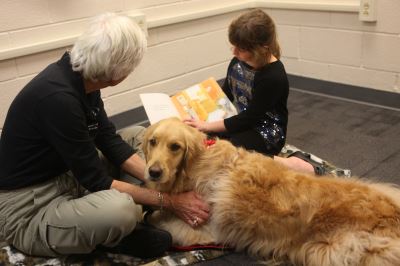Interesting
How Animals Benefit People with Dementia
Pet therapy is a field in medicine in which animals like dogs and cats are used to help patients recover from health problems like cancer, heart disease, and dementia. Ever since its introduction, it has received lots of positive feedback and even amassed a huge following.
Sometimes, pet therapy is confused with animal-assisted activities. Though they are more or less similar with each other, the later one has a more general use, which is to provide enjoyment and comfort for residents in nursing homes.
In the past few years, hundreds of researches and studies were published to share the benefits of these two for people with dementia. Here are some of them:
1. An Improved Mood
People with dementia are at a high risk for developing depression. However, with animal assisted therapy, the mood of patients gets to improve without having to compromise the quality of life.
In a study that aims to evaluate the benefits of animal-assisted therapy, it was found out that people who kept in contact with dogs were not sad and anxious while doing various physical activities. They even showed positive emotions. This only implies that animals play a vital role in the lives of these individuals.
2. Soothing and Calming Effect
In 2008, a study was published about how psychologists observed the calming effect brought about by pet therapy among a number of nursing home residents. Other studies suggest that animal-assisted therapy also results in a lower blood pressure level.
3. Improved Nutrition
In another study, an aquarium was placed in a facility. Days after, researchers noticed there was an increase in the weight and food intake of the residents. Because of that, the costs for the facility decreased as nutritional supplements were only given when needed.
4. Decrease in Behavioral Problems
One experiment wanted to show the effects of having a resident dog at a nursing facility. As soon as the dog arrived, researchers found that the challenging behaviors of the patients decreased significantly.
5. Better Verbal Communication
Recently, a pilot animal-assisted intervention program was launched in Germany. It involved systematized dog visits to 17 different nursing home residents who have mild to severe dementia.
Participants who joined the sessions immediately showed improvement in verbal communication and listening comprehension.
Obviously, pet therapy can lift the spirits of those living in assisted living centers. However, experts believe that more can be gained from these activities through other structured animal-assisted intervention programs. If you wish to learn more about this, we recommend you visit Dementia Enabling Environments.
Image Sources: [1] [2] [3] [4] [5]









